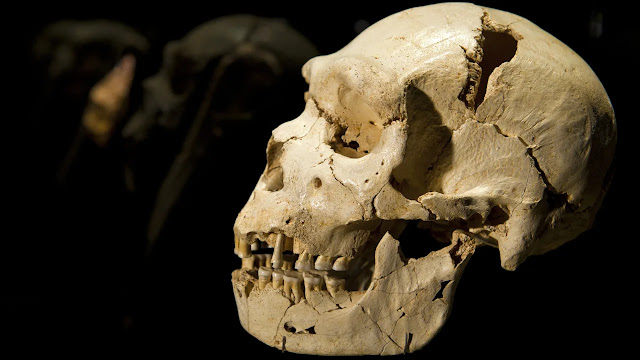"ABOUT 98.7 PERCENT OF HUMAN ANCESTORS WERE LOST."
On the Ropes
Based on recent studies, it appears that our ancient
ancestors faced almost complete extinction before Homo sapiens could even begin
to evolve.
A study that was published in the journal Science discovered
genetic evidence of an astonishing collapse of an unidentified human ancestor's
population 900,000 years ago. The results indicate that, following an
unexplained disaster, there may have been as few as 1,280 breeding people left,
compared to a peak of 100,000 – a figure that would not rise for an additional
117,000 years.
According to Haipeng Li, a population geneticist at the
University of Chinese Academy Sciences in Beijing and co-author of the study,
"about 98.7 percent of human ancestors were lost," she told Nature.
According to archaeologist Nick Ashton of the British
Museum, the community must have "occupied a very localised area with good
social cohesion" in order for it to have survived for such a long time.
"If this is correct," he continued, "then one
imagines that it would require a stable environment with sufficient resources
and few stresses to the system."
Close Knit Community
For prehistoric history, the years 600,000–1,000,000 years
ago were tumultuous. Droughts and little ice ages occurred periodically, and
the climate was unpredictable overall. Regarding how our forefathers were born
under those circumstances, many questions persist.
Still, this most recent finding offers a significant new
understanding. The researchers examined 3,154 individuals' genomic data from 50
distinct populations in order to look back in time. They then created a kind of
evolutionary history for those communities by comparing the emergence of
distinct genomes in each community.
Their findings suggest that the pressure of evolution
leading to the emergence of Homo sapiens may have come from this bottleneck.
According to the researchers, forcing our ancestors to live in close quarters
may have eliminated up to two-thirds of genetic variation, giving rise to
characteristics unique to humans, such as a large brain.
"It was fortunate, but evolutionary biology tells us
that new species can emerge in small, isolated populations," Sapienza
University of Rome anthropologist Giorgio Manzi, a senior author, told TheGuardian.
But it's anyone's guess as to what created the congestion.
Li speculates that abrupt changes in the climate might be to blame. London's
Natural History Museum's Chris Stringer, head of human origins, isn't so sure.
"Maybe this bottleneck population was stuck in some area of Africa surrounded by desert," he told the British newspaper.
